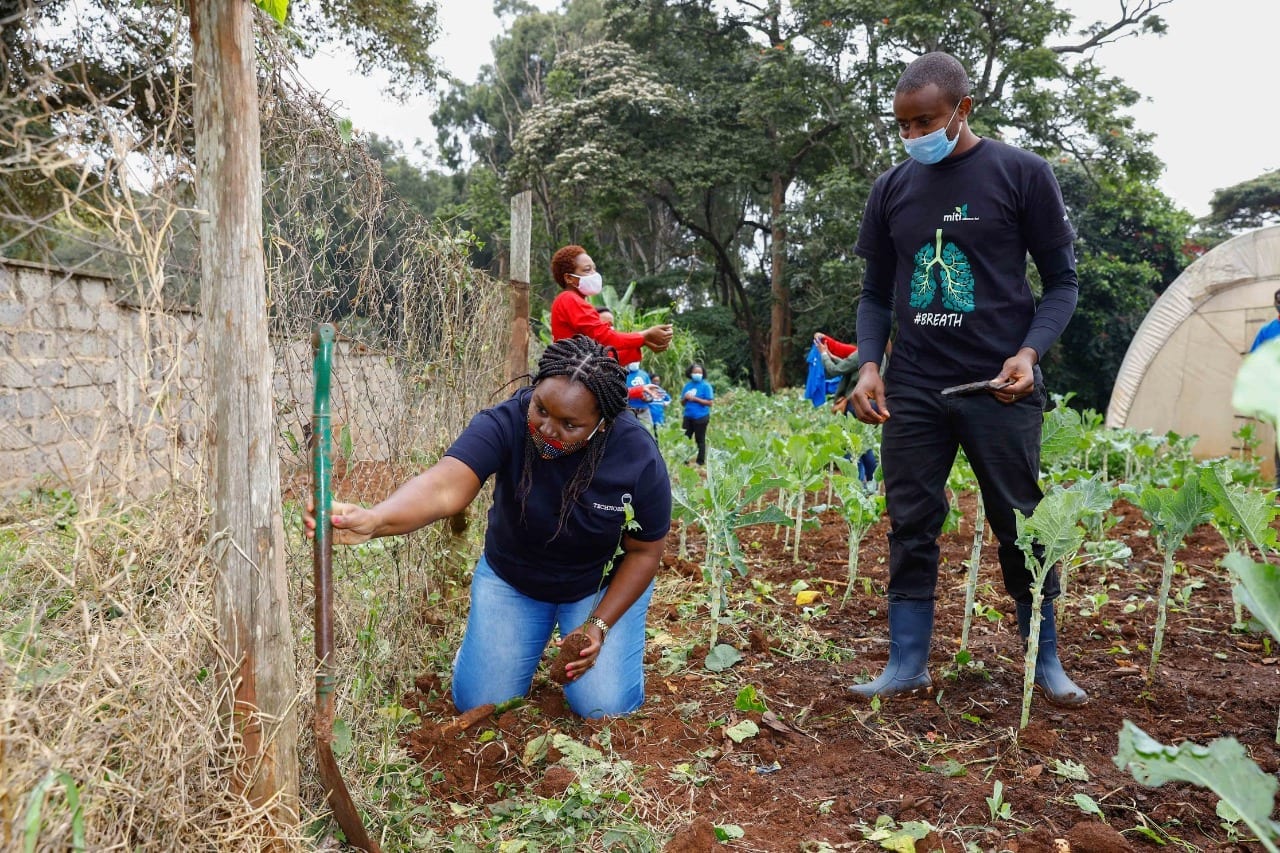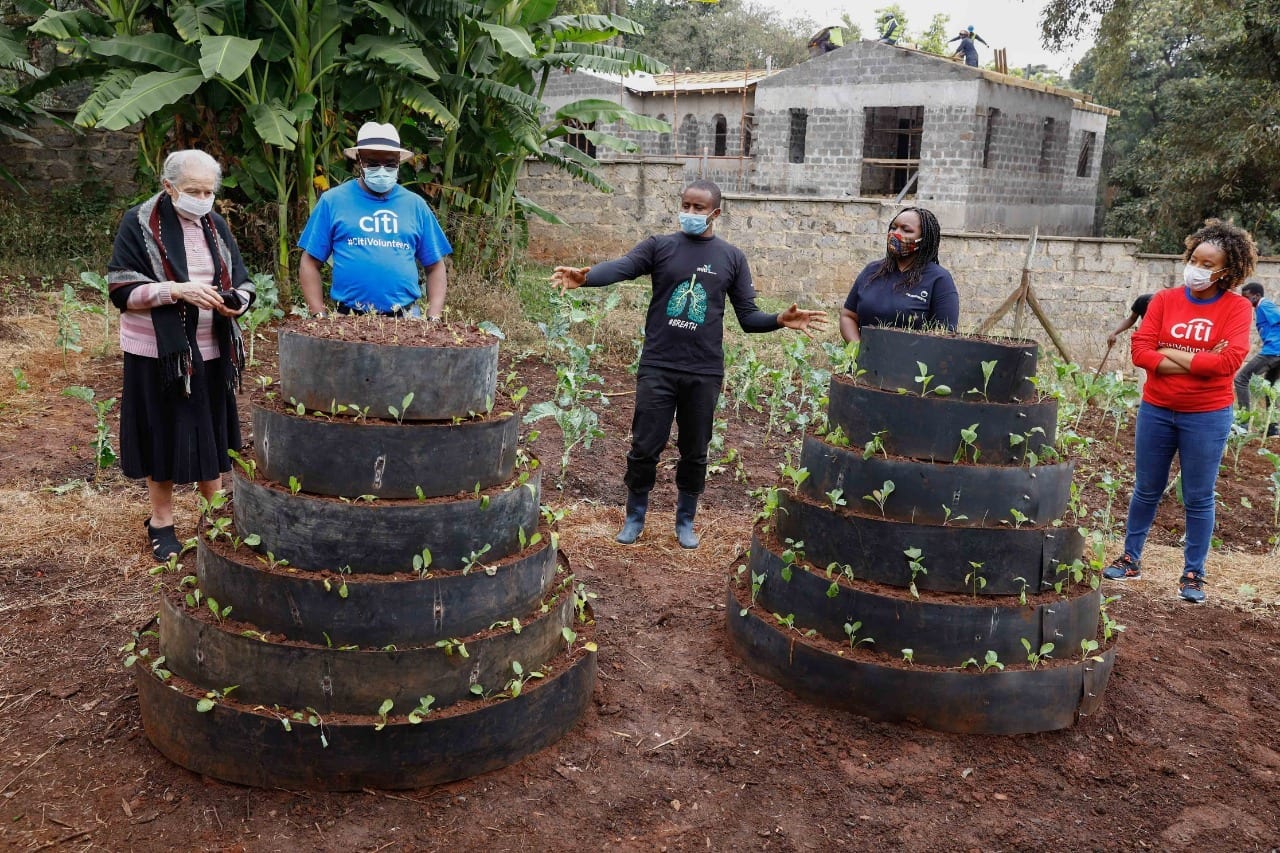In Kenya, Small Shops Facing their Own Challenges Give Back to the Community
For the past three years, TechnoServe has partnered with Citi Foundation to celebrate Global Community Day — an opportunity to give back to local communities through service. This year, in response to the COVID-19 pandemic, Citi is partnering with TechnoServe’s Smart Duka program to distribute care packages to children’s homes and senior homes in Nairobi, Kenya.

In Kenya, small retail shops known as dukas supply 80% of consumer goods. Often run by women, these shops provide essential food and supplies to low-income communities. Even in normal times, dukas face many business challenges, but the COVID-19 pandemic has created even more hardship for these enterprises.
In recent months, many duka owners have reported a devastating 50% decrease in sales. “With the current coronavirus situation comes challenges,” explains Florence Muthoni, a duka owner in Juja, Kenya. “My shop is strategically located near a university, where most of my customers are students. With the actions taken by the government on the closure of all learning institutions, my customers have reduced and I have stopped selling vegetables and bread — hence the sales have gone down at the moment.”
Many of their customers have left the city for more rural areas, while others have suffered lost income and are reducing their purchases as a result. In addition, suppliers have increased the prices of many products, making it difficult for shop owners to keep items in stock, while new safety procedures have made it more time-consuming and expensive to keep their shops open.
The Smart Duka Program
Since 2015, TechnoServe has been working with the Citi Foundation, elea Foundation, Moody’s, and Mastercard for Inclusive Growth to increase the profitability of over 12,000 small shops in Nairobi — the majority of which are women-operated or women-owned.
The Smart Duka program provides one-on-one consulting and group training to improve marketing and merchandising; general business skills; relationships with lenders, suppliers, and customers; and coordination amongst shops. The project is also exploring practical digital solutions that will enable Nairobi’s shopkeepers to manage inventory efficiently and make mobile payments.

This year, to celebrate Global Community Day, Citi Foundation and TechnoServe are partnering with the Smart Duka program to distribute two types of care packages to children’s homes and senior homes that have been badly affected by COVID-19. The first package is an assortment of dried goods, including maize flour, wheat flour, beans, bar soap, and cooking oil. These basic goods are essential for many households, particularly during the pandemic, but can be difficult to buy because of financial constraints and restrictions on movement. The dried goods were purchased from shop owners in the Smart Duka program, thereby supporting local businesses.
The second care package is a kitchen garden starter pack, which includes an assortment of vegetable seeds, seedlings, fruit trees, compost, and tools. Kitchen gardens can produce up to 30 kilograms (66 pounds) of food each week, ensuring that vulnerable communities have enough to eat, even when lockdowns and price inflation can make getting food difficult.
“We are glad to be partnering with Citi on this great work,” says Alice Waweru, TechnoServe’s entrepreneurship regional program manager. “These are very essential products that we will be handing over to these people in need.”
Now more than ever, micro-retailers are vital to Kenya’s economy and to the customers they serve. During this difficult period, shopkeepers, neighbors, and entire communities are working together to help each other out, even as they overcome their own challenges.




